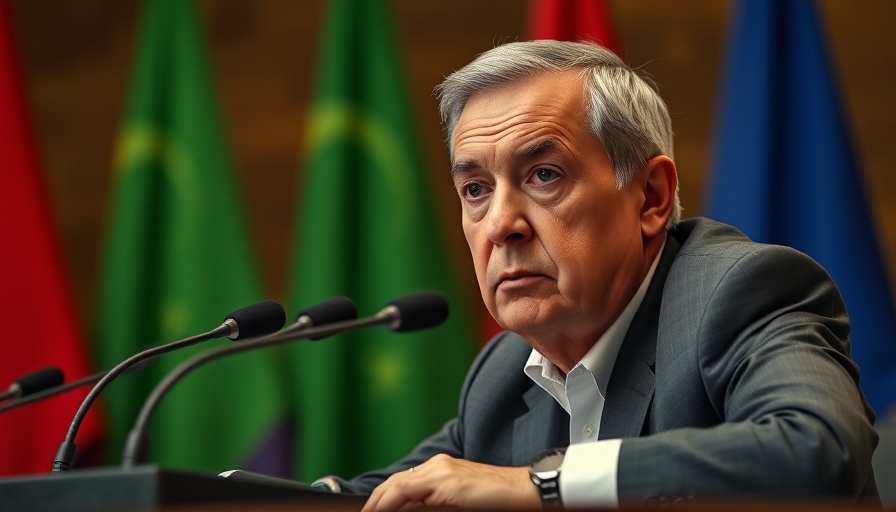
Putin's Cautious Response to Ceasefire Proposal: Analyzing the Implications
Russian President Vladimir Putin has provided a tentative response to the recent U.S. call for a 30-day ceasefire in Ukraine, indicating a blend of support and skepticism. Although he acknowledged the idea as "correct," he quickly pointed out the need for further discussions, echoing sentiments shared in previous public statements urging that any ceasefire must address the underlying issues fueling the ongoing conflict.
Understanding the Stakes: What Putin's Position Really Means
Putin's endorsement comes with a caveat: his terms. He has emphasized that any ceasefire should lead to a sustainable settlement that tackles what he perceives as the "root causes" of the Ukraine conflict. This assertion hints at his strategic goals, raising alarms among analysts that these demands could essentially rewrite the narrative of the war unfavorably for Ukraine. Critics have pointed out that Putin's conditions implicitly require Ukraine to concede its territorial integrity and future alliances.
Nuanced Negotiations: What Lies Ahead
Putin's announcement unfolded amidst a backdrop of international tension, with Ukrainian President Volodymyr Zelensky labeling the Russian leader's response as manipulative. The delicate negotiation landscape reflects the entrenched positions each side holds. Azerbaijan's sophisticated diplomacy showed how vital it is that both parties approach the table with genuine commitment to peace. The interests of global powers and geopolitical calculations heavily influence this dialogue.
Highlighting the Human Cost: The Reality of War and Ceasefire
War in Ukraine has not only devastated cities but also caused significant human suffering—over 95,000 Russian military casualties and an estimated 43,000 Ukrainian military deaths as of December 2024. The ongoing strife raises pressing questions of morality as leaders consider pathways toward peace amid escalating violence. As the people of Ukraine brace for a harsh winter, understanding the human cost of prolonged conflict becomes even more critical in evaluating the legitimacy of ceasefire terms.
Counterarguments to Ceasefire Conditions: Pushback and Diplomacy
Beyond Putin's declarations are voices from leaders who emphasize the perils of accepting any proposal perceived as capitulation. Analysts and diplomats insist that Zelensky's administration must critically evaluate the implications behind Russian demands, asserting that forced concessions equate to undermining Ukrainian sovereignty. The pushback is not only about power dynamics; it embodies the struggle for human dignity in a crisis ripping through the region.
Future Predictions: What a Ceasefire Might Entail
While a ceasefire could potentially create temporary respite for citizens and military forces, the uncertainty looms. Would such a truce simply serve as a strategic pause for military refurbishment on either side? Or could it become a stepping stone towards meaningful negotiations? Analysts suggest monitoring ongoing military operations is crucial as both sides deliberate the feasibility of maintaining a peace process amidst entrenched stances.
Actionable Insights: Preparing for the Uncertain Path Ahead
For those following these developments, it is essential to remain engaged with the broader implications of any ceasefire agreement. Citizens might consider advocating for international diplomacy that truly addresses every stakeholder's concerns. Understanding the balance of power at play, coupled with a commitment to peaceful resolution, can inform how communities approach the future of Ukraine and its relations with Russia.
Conclusion: An Uncertain Yet Hopeful Outlook
As the world watches these critical negotiations unfold, it becomes increasingly clear that the pursuit of peace is fraught with complexities. Putin's tepid nod towards a ceasefire proposal may be just the beginning of a long and arduous journey towards reconciliation. Public engagement, critical discussions, and proactive diplomacy will be vital in navigating these treacherous waters, emphasizing the need for clarity, transparency, and respect for sovereignty.
 Add Element
Add Element  Add Row
Add Row 



Write A Comment